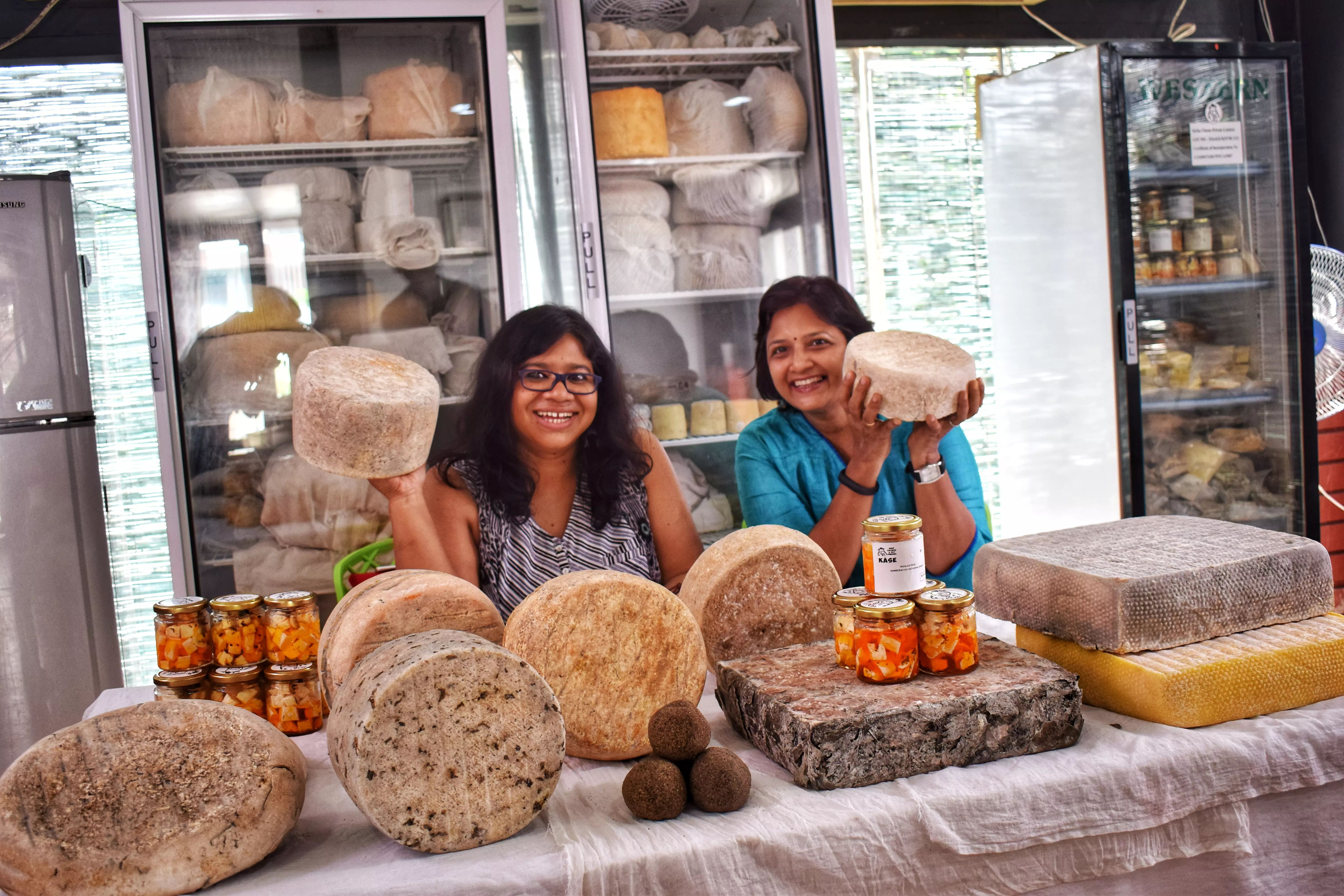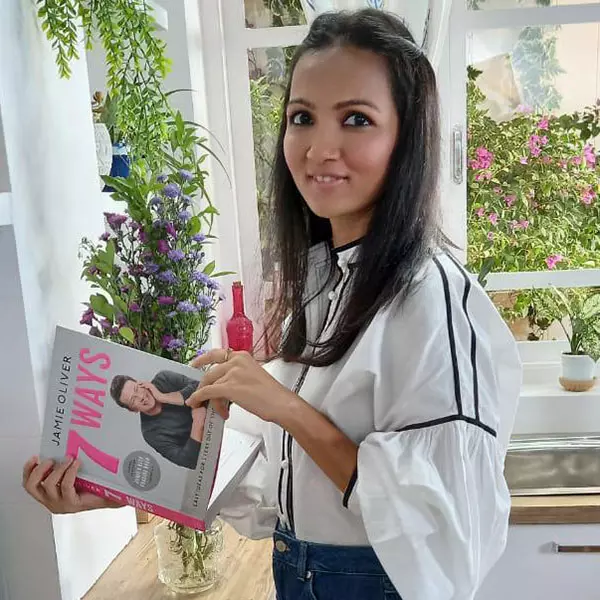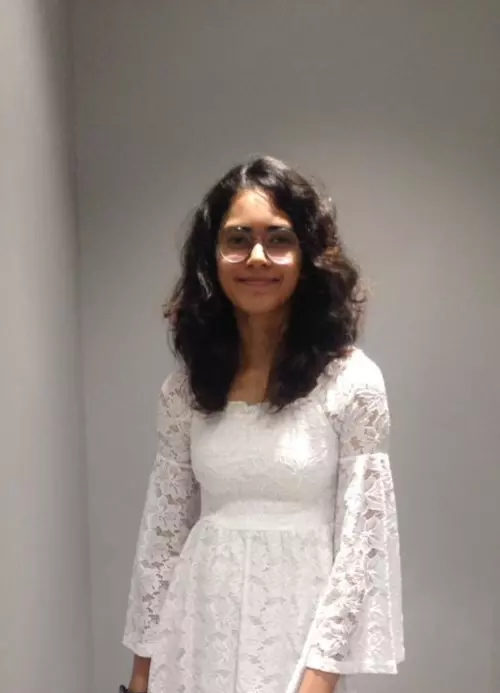Meet the girl who is revolutionising Indian cheese making from the grassroot level
In conversation with Namrata Sundaresan, co-founder of Käse Cheese, about the world of artisanal cheese and its future in India
- By Sonal VedLoading...&
- Natasha KitturLoading...
- | 12 April 2022 12:21 PM IST
 X
X
India is one of the largest producers of dairy products. We have the second largest population of sheep and goats, and Gujarat and Rajasthan have the largest population of camels in the country, with about 4% of the country's GDP depending on pastoralism. Why then, are we not forerunners when it comes to craft cheese and what could be the possible reason for its slow (albeit steady) growth?
We spoke to Namrata Sundaresan, co-founder of Käse Cheese and a cheese maker, about the goings-on of the artisanal cheese world in India.
Edited excerpts from an interview.
Take me right to the start, where does all this love for cheese come from?
It all started with a deep-rooted love for food. As a kid, whenever I saw something
being cooked, I wanted to know what went into making it, and why it was special or different. It intrigued me. I was also inquisitive about different cooking techniques and how they varied person-to-person. My grandmother, for instance, was in no hurry and cooked on the stove, whereas my mother cooked using the pressure cooker because she had other things to tend to. Cheese is something that I've always enjoyed eating. I was introduced to the wide
world of cheese during my travels. Exploring regional, and often, unnamed, cheeses at local farmers markets was delightful! So, seeing different things that tasted unique always appealed to me and I hadn't really thought of cheese making. It transpired rather accidentally when I was on a short break at Acres Wild in Conoor and I signed up for a three-day cheese making course. That's how it all started…
Can you take me through Käse Cheese's journey—what was your focus six years ago and what have they morphed into today?
Käse's journey is very interesting. I have a background in business consulting and international trade and development. I would also mentor start-ups and had a very structured approach to business. But with Käse it started with a cup of coffee with Anu [Anuradha Krishnamoorthy, co-founder of Käse Cheese] where we talked about a few ideas given my
interest in food. I had just come back from the workshop at Acres Wild and so, I was very excited and said to her 'let's make cheese!' Initially, Anu was surprised and she wondered if there was even a market for it. But I felt that it was better than getting into, say baking, which a lot of people were already doing. We started out by taking the product to pop-ups and food exhibitions, and were very excited with the response that we got. Then we started making cheese on order. Very early on we realised that artisanal cheese was different. And while it was exciting for some, to others, it meant switching from what they were used to, both in terms of taste and cost..
So, our focus has been to make great cheese. We aspire to be that B2C brand that people relate to when they talk about artisanal cheese in India. That's why we go to great lengths to ensure that we are procuring the right quality of products..
India is one of the largest dairy producers in the world, why then has the country's artisanal cheese movement started so late?
Historically, we did make cheese,but it always involved the use of rennet—an enzyme that comes from animals. With the Portuguese coming to India, they brought with them acid and that is how the milk was curdled and how chhena and paneer came into being.
The artisanal cheese movement in India has been gathering momentum in the last decade. We've been making artisanal or handcrafted cheese since the 80's. Back then, there were brands like ABC Farms in Pune, Flanders, Kodai cheese and Carousel, too. But there have been a couple of challenges, in terms of transportation, maintaining shelf life and so on. So, [the growth of the market has been stunted] not so much due to the lack of demand as it has been because of the lack of a [holistic] ecosystem.
Do you feel that there is the possibility of India having its own repertoire in cheese?
Absolutely! We always wonder why Indian cheesemakers look at European-style cheeses. Of course, such brands have had more exposure, be it because of travel or availability. But there are some brilliant artisanal cheeses being made in the US as well. However, since they have different names it's difficult to relate to or understand,unless you read a description or have a certain degree of familiarity with categories of cheese. When you look at the PDO Cheese (Protected Designation of Origin) like a feta, cheddar or mozzarella, these are things an Indian consumer is extremely familiar with and that is what they're seeking. So, when we make a cheese in India and start calling it by a different name. It's very difficult for a consumer to relate to it and hence it will take time to build on this.
In terms of repertoire of Indian cheeses, if you look at cheese making, it has a few basic steps that you need to follow, multiple permutations and combinations and with these parameters changing, it ends up being a different cheese. To understand this and the fact that our terroir and milk is unique and diverse by itself, the kind of food that the livestock is feeding also determines the quality of milk, so we definitely have a great possibility of developing our own styles of cheese.
What is that one key factor that plays a pivotal role in converting the average consumer away from processed cheese and towards its artisanal counterparts?
I think health is a serious factor here.. I've spoken to over 3000 consumers with children at home and often they would shop for three classic formats of processed cheese—cheese spread, cheese slices and cubes. They would drop one of these and buy a mozzarella or cheddar from us because that was the easiest to like and once the kids liked it, they would make a decision to drop the others too. It's a significant difference price-wise, but the fact that it's healthier is why they're willing to make the switch..
How do you see the future of craft cheese in India changing and what factors do you think could make notable contributions towards this change?
We're poised for growth. Demand from the consumer is on the rise. At the same time, producers are getting more savvy, they've figured out their packaging and how to make the cheese more accessible to the consumer. We still have the challenge of cold chain and transporting across the country, but with the increase in number of local players, especially in the fresh cheese category, they are able to supply it to immediate markets. Accessibility and the rise in the small batch producers is going to be really prominent in the coming months and years. Alongside B2C, we see a growing demand from B2B, where there is an effort to source locally.
What cheese pairing do you love?
I love a cheese board with at least three different hard cheeses, a few walnuts and honey that pairs really well with strong/ pungent cheeses, with pear or figs.
Your favourite cheese from India?
Cheese makers in India are doing such a fabulous job and making such an amazing range of cheeses that it's hard to pick. But some of my favourites are the buratta from Eleftheria, the gruyère from Amiksa and the camembert from Kumaoni Blessings.
Would you rather eat cheese every day or eat all kinds of cheese only for one day?
Oh, I'd definitely eat cheese every day. I've been doing that anyway!

Sonal Ved
Editor
Sonal Ved is the editor at IFN. She is also an author of an award-winning cookbook called Tiffin. She travelled through the first five tastes to be able to tell between a brie and provolone dolce. She can make stellar undhiyu and a green smoothie.

Natasha Kittur
Natasha Kittur is an aspiring writer. Her love for anything with cheese and spice is profound, but a white sauce pasta always tops her list. In her free time you will catch her reading or watching crime books and shows or go on and on about psychological experiments and theories. She aims to write a book in the fictional genre someday.


